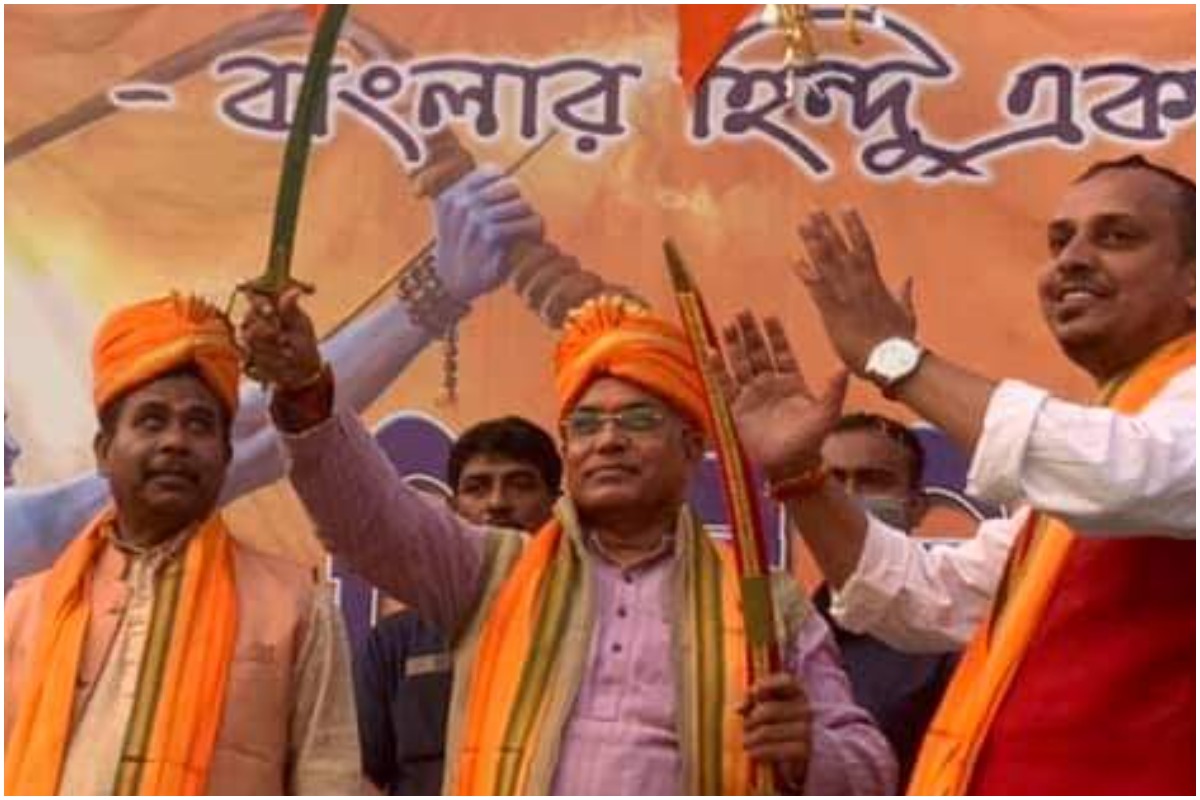Hate speech: BJP leader George seeks time to appear before police
George on Saturday requested the police for an extension until February 24 to appear before them for investigation in connection with the case.
Dilip Ghosh justified his call by asserting that the Constitution of India permitted the usage of weapons in protection of religion.

Dilip Ghosh at the Hindu Jagaran Manch event on Wednesday. (Facebook/@DilipGhosh)
Dilip Ghosh, BJP’s party president in West Bengal, on Tuesday made a controversial remark with his appeal to Hindu youths to take up arms for protecting the dignity of women.
Ghosh, who is known for making irresponsible and tendentious statements, said, “Lord Ram had taken arms at a very young age. To protect the dignity of our mothers and sisters, the Hindu youths need to be united. If need be, they should take up weapons.”
Advertisement
Addressing a gathering at an event of Hindu Jagaran Manch in West Bengal’s Paschim Medinipur, Ghosh justified his call by asserting that the Constitution of India permitted the usage of weapons to protect religious faiths.
Advertisement
“The Constitution has given us the right. To take up arms in protection of our religion, pride and life is not illegal. We’ll do exactly that,” he said.
The Medinipur MP also called for revenge before law. “Take the revenge first then go to police station,” Ghosh exclaimed.
Earlier this week, he had grabbed the headlines with his contentious words on Nobel laureate Amartya Sen amid the recent Visva-Bharati University land row.
Hitting professor Sen below the belt, Ghosh said that the former didn’t have any moral right to speak anything about West Bengal because he married thrice.
“I don’t want to attack personally to a person who has married three women of three different faiths. He has no moral right to say anything,” Ghosh was seen saying on Bengali news channel ABP Ananda.
“He has fled the country. He is never seen with the people of this country. He was nowhere to be found during a crisis like Amphan or pandemic. We are not here to take moral lesson from such a person,” the Medinipur MP added.
A debate has been stirred in West Bengal after Visva-Bharati University VC alleged that Professor Sen – an allumni of the institution – had identified himself as “Nobel laureate Amartya Sen”. A claim refuted by the Bharat Ratna.
The situation escalated further when VBU authorities wrote to the West Bengal government last week, claiming that the internationally-famed economist had illegally registered a part of the university’s land under his own name.
Advertisement